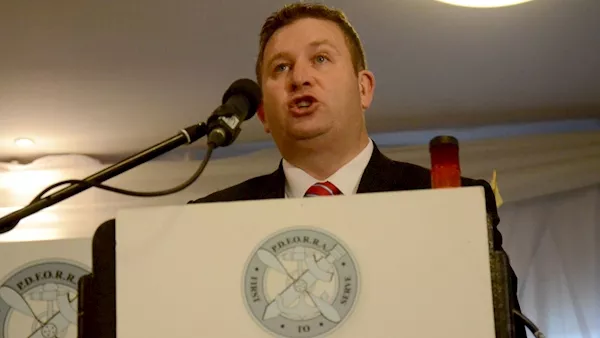The Government is sending Ireland's elite troops to "one of the most dangerous places in the world" but is refusing to pay them increased allowances agreed by independent arbitration in 2010.
Millions of euro are owed to the elite Army Ranger Wing (ARW), chefs and some specialist technicians following the ruling, which the Department of Defence has refused to abide by.
The Oireachtas Committee on Equality, Justice and Defence heard today that the department had also 'profited' in recent years by denying members of the Defence Forces compensation for 147,000 days leave lost by personnel.
PDForra general secretary Ger Guinan estimated this had saved the State anything between €17m to €20m and yet the Government is happy to leave the Defence Forces as the worst paid public servants.
Mr Guinan said the Government recently announced it was sending the ARW to Mali, "one of the most dangerous places in the world," and it should pay them and the others who got successful arbitration the back pay it owes them for the last nine years.
Mr Guinan said in the meantime a number of people entitled to the back pay had retired and as a result had done so on a reduced pension. "How fair is that," he asked.
He said many of those who recently bailed out of the Defence Forces due to poor pay and conditions "left with a deep sense of betrayal and disenfranchisement that will never be assuaged".

PDForra general secretary Ger Guinan. Pic: Paul Mealey
"It will come as no surprise to the committee that central to these difficulties are the issues of pay and allowances offered to members of the Defence Forces, the non-application of the Working Time Directive and the current difficulties being experienced by personnel vis-a-vis their contracts of service," he said,
Mr Guinan said the exodus of Defence Forces personnel for better pay and conditions in the private sector had left staffing shortfalls, which have "resulted in extreme stress and anxiety" for personnel who remained to plug the gaps.
"The lack of proper remuneration has further impacted on the morale of personnel, which ultimately reflects on operational effectiveness," he said.
Mr Guinan said the failure of his association to secure any advances through normal Conciliation and Arbitration channels with the Department of Defence had forced PDFORRA to take court action on a number of issues - which have proved successful for his members.
"PDForra has no remorse for undertaking the legal actions.
"Our members who give such loyal service to the State deserve results no matter how they come."
"However, I do believe that taxpayers should question the efficacy of the prevailing norm (by the department) of pushing PDForra into a situation where they know we will go to court to vindicate the rights of our members," Mr Guinan said.
He described PDForra's relationship with the department as "deeply frustrating" and signalled that his organisation would mount more court challenges if forced to do so.
Mr Guinan said PDForra was forced two years ago to set up its own private healthcare programme, because the Defence Forces "medical corps was on its knees and can't cope".
He also pointed out that injured personnel had nowhere proper to convalesce.
This came as a surprise to committee member Senator Terry Leyden who pointed out that the British government continues to operate a hospital in Leopardstown, which treats their armed forces veterans.






